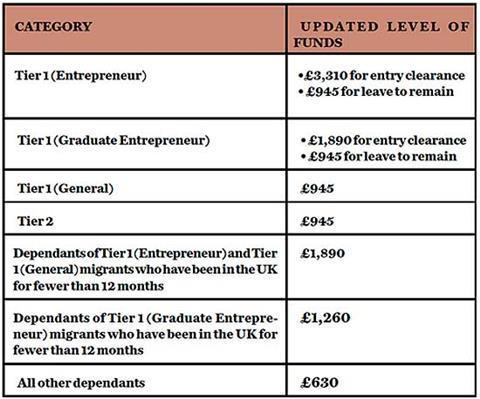On 13 March 2014, changes to the UK Immigration Rules were laid before parliament. Due to the breadth of these recent amendments, this article focuses on those changes most relevant to business immigration. Unless noted, the new rules affect those applications made on or after 6 April.
Tier 1 (Exceptional Talent)
The Tier 1 (Exceptional Talent) category has been expanded to include endorsements for applicants with exceptional talent in the technology sector.
Alongside the established designated competent bodies for the arts, sciences, humanities and engineering, Tech City UK has been added to assess applicants in the field of digital technology.
Although the route has been expanded in terms of fields, the annual limit of 1,000 places will remain unchanged. The new allocation of places is as follows:
- 250 endorsements to the Arts Council for the purpose of endorsing applicants with exceptional talent in the fields of arts and culture;
- 250 endorsements to the Royal Society (pictured) for the purpose of endorsing applicants with exceptional talent in the fields of natural sciences and medical science research;
- 150 endorsements to the Royal Academy of Engineering for the purpose of endorsing applicants with exceptional talent in the field of engineering;
- 150 endorsements to the British Academy for the purpose of endorsing applicants with exceptional talent in the fields of humanities and social sciences; and
- 200 endorsements to Tech City UK for the purpose of endorsing applicants with exceptional talent in the field of digital technology.
In addition to the above, the following changes have been made to the category:
- applicants may apply from any country overseas where they have been authorised to live for more than six months;
- individuals may now switch into the route from all Tier 1 categories;
- migrants presently in the category may apply for extensions while overseas; and
- migrants applying for indefinite leave to remain from the category may count time spent in other Tier 1 and Tier 2 categories (excepting the Tier 1 (Graduate Entrepreneur) and (Post-Study) categories, and Tier 2 (Intra-Company Transfer) category).
Tier 1 (Entrepreneur)
For applicants switching from Tier 1 (Graduate Entrepreneur) into Tier 1 (Entrepreneur), funds used to qualify may be invested in their business up to 24 months prior to application. The qualifying time period of investment for applicants switching from other categories will remain at 12 months.
Additionally, the following changes to evidential requirements have been made:
- declarations from the financial institutions of third-party funders must now state that the third party has ‘informed the institution of the amount of money it intends to make available, and that the institution is not aware of the third party having promised to make that money available to any other person’.
- applicants who hold funds in joint accounts with their partner or spouse are no longer required to provide third-party declarations;
- legal representatives acting as witnesses of third-party funding declarations must be independent of the third-party funder(s).
The government has confirmed that applicants aged 16 and older may apply under this category.
However, any applicant under the age of 18 must receive the consent and support of their parent or legal guardian regarding the application and the applicant’s care in the UK.

Tier 1 (Graduate Entrepreneur)
Tier 1 (Graduate Entrepreneur) applicants are no longer required to have obtained their degree within 12 months of the date of application, nor must the same institution that awarded their degree endorse them.
Additionally, the previous allocation of endorsements has been revised, though not increased, as follows:
- 1,900 places allocated for qualifying higher education institutions; and
- 100 places allocated for UK Trade & Investment.
Although applicants are limited to only two grants of leave under this category, a change has been introduced to permit the second grant to be from a different endorsing body.
Tier 1 (Investor)
Tier 1 (Investor) migrants must invest funds within three months of entering the UK. However, under the amended rules, this investment deadline may be extended in light of ‘unforeseeable’ situations that are ‘outside of the applicant’s control’ and owing to ‘exceptionally compelling reasons’.
As with Tier 1 (Entrepreneur), applicants aged 16 and older may apply under this category. Similarly, any applicant under the age of 18 must receive the consent and support of their parent or legal guardian regarding the application and the applicant’s care in the UK.
Tier 1 (General)
Applications for leave to remain under Tier 1 (General) will no longer be accepted after 6 April 2015, and applications for indefinite leave to remain in the category will no longer be accepted after 6 April 2018.
Tier 2
Several notable changes have been made to Tier 2. These include:
- Leave for Tier 2 (Intra-Company Transfer – Long Term Staff) and Tier 2 (General) may now be granted for up to five years; and
- The minimum salary thresholds and salary rates have been updated to reflect a 0.9% increase rounded to the nearest £100.
Points-Based System (PBS) maintenance requirements
Finally, maintenance thresholds for main applicants and their dependants within the PBS have been moderately increased in line with Consumer Price Index inflation since their last update in 2012 (see table above).
Laura Devine, Laura Devine Solicitors































No comments yet